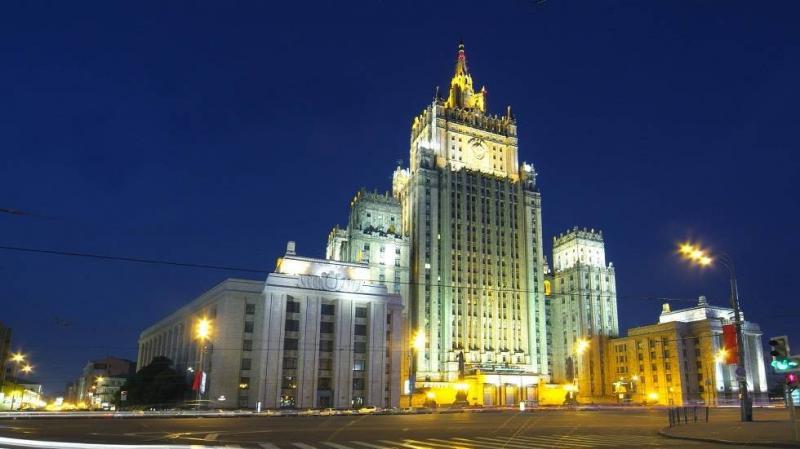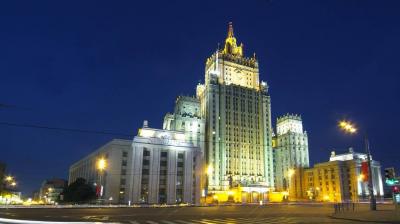The Russian Foreign Ministry expelled three employees from the diplomatic missions of Germany, Sweden, and Poland due to their participation in unauthorized protests supporting imprisoned opposition leader Alexei Navalny.
The Russian Foreign Ministry clarified in a statement today that it summoned the Swedish ambassador, the acting Polish representative, and the envoy from the German Embassy, informing them of its protest against the recorded involvement of staff from the Swedish and Polish consulates in St. Petersburg and the German embassy in Moscow in the illegal demonstrations on January 23, 2021. The statement added that the diplomats participating in the illegal protests were declared "persona non grata" in accordance with the Vienna Convention on Diplomatic Relations, signed on April 18, 1961. The statement also emphasized that the diplomats should leave the territory of the Russian Federation as soon as possible, stressing that such actions on their part are unacceptable and do not align with their diplomatic roles. The ministry indicated that Russia expects the diplomatic missions of Sweden, Poland, and Germany to strictly adhere to international law.
European reactions to the Russian Foreign Ministry's decision were swift and condemnatory, with EU Foreign Affairs Commissioner Josep Borrell strongly denouncing Russia's expulsion of European diplomats. The Swedish Foreign Ministry regarded the expulsion of Swedish diplomats by Moscow as entirely baseless and stated that Sweden holds the right for proportional retaliation. From Germany, Chancellor Angela Merkel described the Russian Foreign Ministry's decision as "unjustified," while French President Emmanuel Macron condemned "in the strongest terms" Russia's expulsion of European diplomats.
Russian-European relations are increasingly volatile, as Russia announced an expansion of sanctions lists targeting representatives of EU countries in response to EU sanctions concerning the case of opposition leader Alexei Navalny. This came after the EU imposed sanctions on six individuals from Russia and one entity following allegations of involvement in an assassination attempt against Navalny. For his part, Russian Foreign Minister Sergey Lavrov warned that further deterioration in relations between Russia and the EU is fraught with negative and unpredictable consequences, stressing that bilateral relations are not in their best state due to the illegal federal restrictions imposed by the EU on Russia, during a press conference after talks with EU High Representative for Foreign Affairs Josep Borrell.
Notably, a Russian court last Tuesday sentenced Navalny to three and a half years in prison for violating the terms of judicial control imposed on him in a case dating back to 2014. It is worth mentioning that the Kremlin condemned U.S. President Joe Biden's remarks today after he criticized Russia and called for the release of opposition leader Alexei Navalny. Kremlin spokesman Dmitry Peskov described it as an aggressive and unconstructive speech and expressed hope to maintain a foundation for cooperation despite the vast disagreements on fundamental issues. Biden stated yesterday that he had "confirmed to President Vladimir Putin - unlike his predecessor - that the past days are over," pointing out that "the imprisonment of opposition leader Alexei Navalny and the suppression of gatherings are sources of concern for us, and Navalny should be released immediately and unconditionally."




